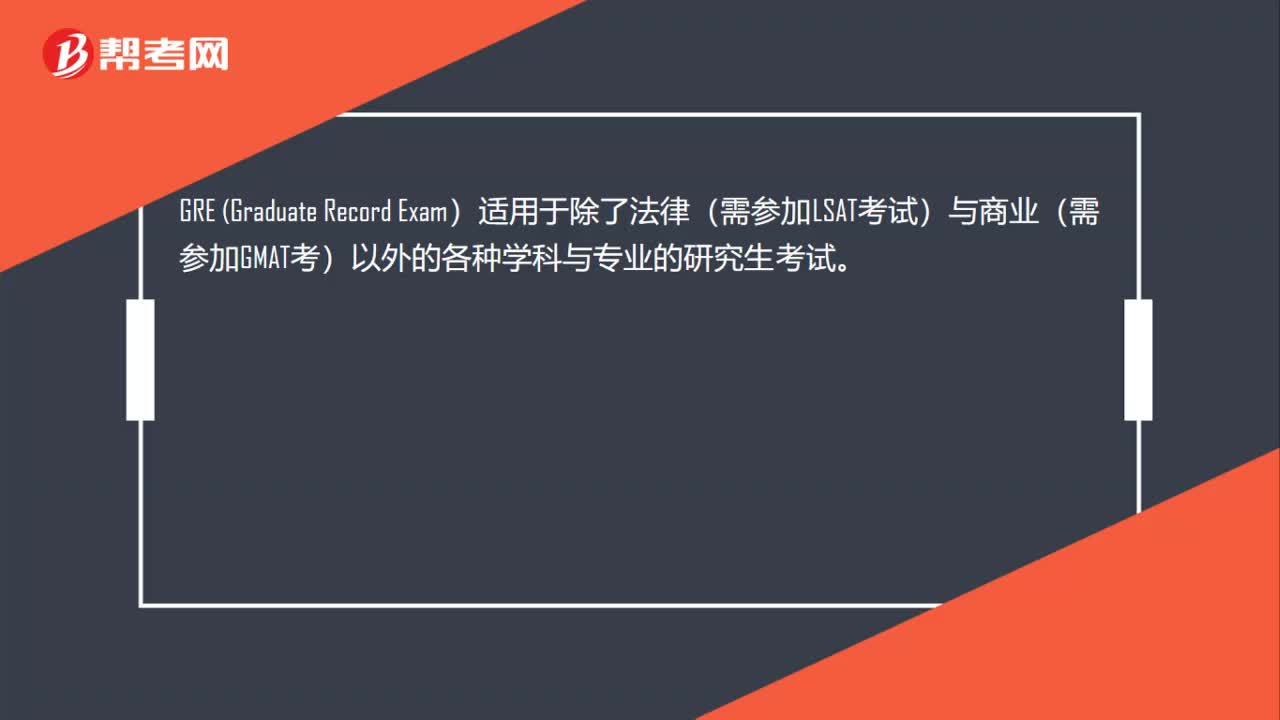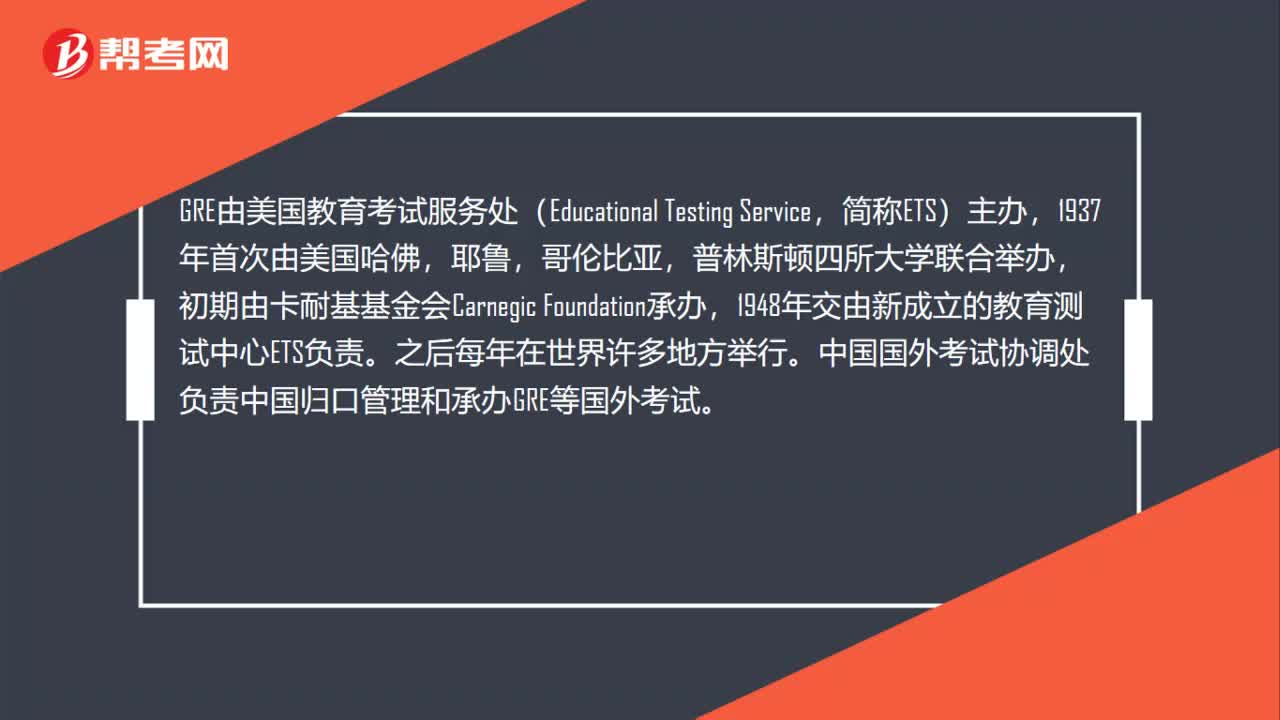
下载亿题库APP
联系电话:400-660-1360

下载亿题库APP
联系电话:400-660-1360

请谨慎保管和记忆你的密码,以免泄露和丢失

请谨慎保管和记忆你的密码,以免泄露和丢失

小伙伴们,GRE考试大家复习的怎么样了呢?下面是帮考网分享的GRE考试作文部分的复习资料,一起来看看吧!
GRE写作范文一
"Wisdom is rightfully attributed not to people who know what to look for in life but to people who know what to overlook."
The quotation is certainly correct, insofar as it describes at least an element of wisdom. In other words, I do agree with the proposition, subject to the proviso that the achievement of wisdom may well also involve other traits or attributes.
Having qualified my answer somewhat, I must endorse the principles put forth in the quotation. Overlooking -- or, perhaps, forgetting -- is a crucial skill one needs to master in order to navigate the often-treacherous paths of life without undue torment. From my own experience, and from observations of friends, family members and business associates, I am well aware of the pitfalls which await those who fail to overlook the petty, the unnecessary and the irrelevant.
In modern America, as it happens, the importance of overlooking is probably greater than ever before. Even a person trying to lead a quiet, simple life encounters an endless stream of annoyances, errors and petty demands such as paperwork, filing numbers and taxes; long lines at the bank; exponentially aggravating traffic jams and sullen, uncooperative coworkers and neighbors. Those of us who cannot overlook such annoyances will invariably succumb to self-defeating dismay.
The ability to overlook also reflects a healthy sense of proportion and priorities. The wise "overlooker" will ignore his or her spouse\\'s failings after making a considered judgment that these are outweighed, in the long run, by greater and more significant strengths. for example, what wise or reasonable person would destroy a marriage solely because an otherwise faithful, kind, generous, intelligent and prosperous partner occasionally tosses socks on the floor?
An elderly aunt of mine makes a striking example. Long widowed, she now spends her days sitting in her apartment, carping endlessly about the many relatives who have slighted her. Nobody calls enough. Nobody pays her any atention. Nobody cares, she says.
And, indeed, why should they? Who wants to visit with someone, elderly or otherwise, who does nothing but complain, find fault and scour for slights? Were she wiser, perhaps she would ignore or even suppress her interminable grievances and take more interest in the world at large, including the very individuals whose attention she purportedly craves.
The paradigm of overlooking applies with equal force in the worlds of business and politics. Look at Richard Nixon: a brilliant, often original thinker, he was nonetheless continually obsessed with minutiae and the unimportant. On some level, I\\'m sure, he himself realized the dramatic impact of such a glaring character flaw; when the situation was long past salvaging, he exhorted his staff and friends to "Never be petty," a dictum he honored far more in the breach than in the observance.
More prosaically, in business and everyday life, it is indeed the wise person who overlooks or ignores a vast amount. Why come home every day nurturing a grudge? Why spend time grappling with activities, people or attitudes which bring nothing but pain and torment? Still, most of us do, at least somewhat, and find ourselves far diminished for it.
In sum, I think it\\'s safe to say that much in this world merits not even a cursory examination, and those among us are wiser and happier who can successfully budget their time and energy in order to avoid negativity.
Comments:
This is a thoughtful, well-articulated analysis of the issue.
The response opens with a clear endorsement of the stated claim, along with an acknowledgement that wisdom involves additional traits. The writer then begins building an argument that modern life is so full of "petty annoyances" that it would be "self-defeating" to pay much attention to them. Using, first, examples that illustrate the trivial demands encountered everyday (e.g., paperwork, traffic jams), the analysis moves on to personal types of experiences (a partner annoying habits; an aunt self-pity) and then to politics, where, the writer implies, Nixon met his political demise at least partly because of his obsession with "minutiae and the unimportant." The examples clearly support the writer position and lead effectively to the concluding observation about learning to "budget" our time and energy to avoid the negative aspects of life.
In several places, the skillful use of questions helps move the analysis along. And throughout, the skillful use of sentence variety and precise vocabulary combine to convey meaning effectively, as in this excerpt: "when the situation was long past salvaging, he [Nixon] exhorted his staff and friends to a dictum he honored far more in the breach than in the observance." This kind of insightful, articulate analysis merits a score of 6.
好了,各位小伙伴根据自己的情况进行查阅,希望本文对各位有所帮助,预祝各位取得满意的成绩,如需了解更多相关内容,请关注帮考网!
 44
44GRE考试一般要准备多久?:GRE考试一般要准备多久?这个因人而异。如果已经考过托福基础比较好的话,复习一两个月也能考到比较满意的分数。如果基础不是很好,就得集中时间大量突破,兵贵速不贵久。GRE的战线拖得太长也不好,后期会很疲累,一般来说六至八个月可以了,后面多加两个月可以增加信心分。
 31
31GRE考试适用范围是什么?:GRE Graduate Record Exam)适用于除了法律(需参加LSAT考试)与商业(需参加GMAT考)以外的各种学科与专业的研究生考试。
 58
58GRE考试是什么?:GRE考试是什么?GRE由美国教育考试服务处(Educational Testing Service,简称ETS)主办,1937年首次由美国哈佛,耶鲁,哥伦比亚,普林斯顿四所大学联合举办,初期由卡耐基基金会Carnegic Foundation承办,1948年交由新成立的教育测试中心ETS负责。之后每年在世界许多地方举行。中国国外考试协调处负责中国归口管理和承办GRE等国外考试。